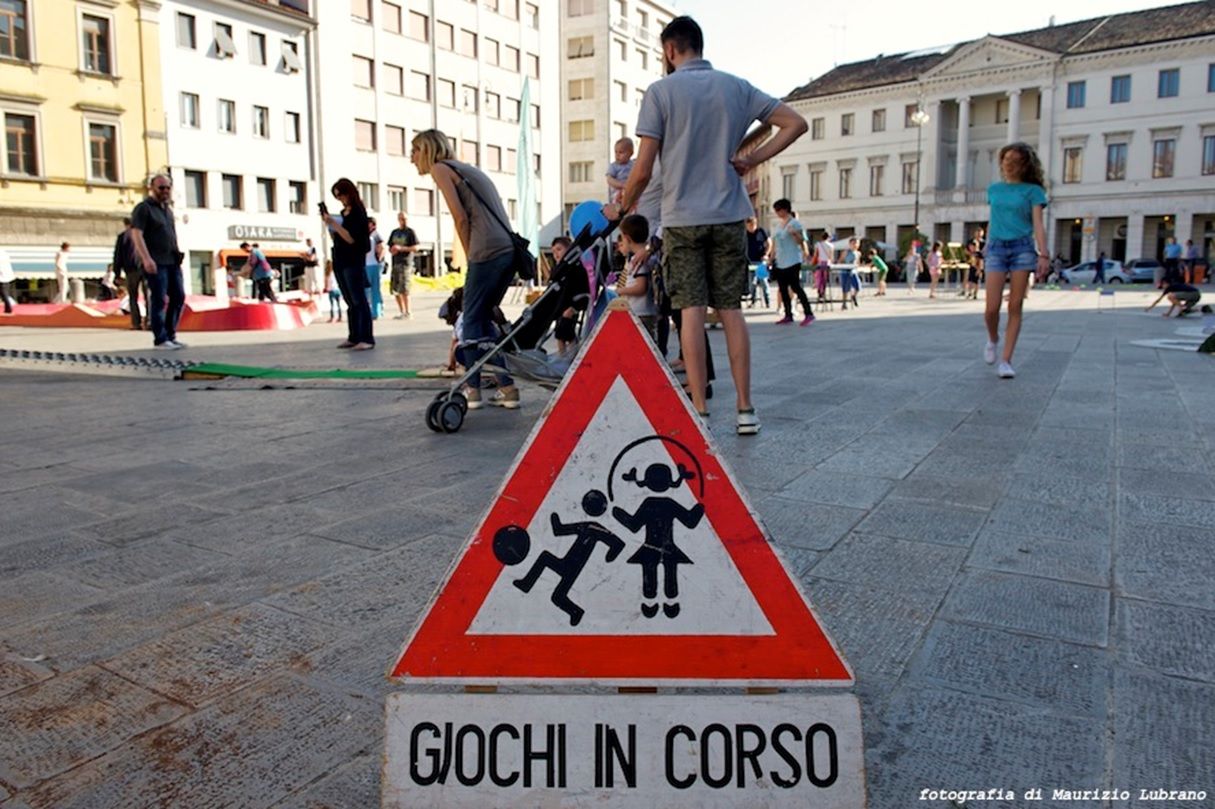The Playful Paradigm Transfer Network focused on using games and playful spaces to engage city stakeholders in urban development. As well as promoting social inclusion, intergenerational and cultural mediation, and healthy lifestyles, the concept also drives environmental awareness, ‘placemaking’ and economic prosperity. The city of Udine, in Italy’s Nord-Est region – which started incorporating play into its urban policy in the early 2000s – led the project. Seven other cities across Europe were involved.
Playful Paradigm: Re-thinking urban challenges through play
- 04 September 2021
Playful activities are powerful tools when applied in cities. Games can be used for working in deprived neighbourhoods with the local community, or in schools with students. They can trigger the participation of civil society, engaging citizens and local associations.
The cities of Klaipėda in Lithuania, Larissa in Greece, Katowice in Poland, Cork in Ireland, Esplugues de Llobregat in Spain, Novigrad-Cittanova in Croatia, and Viana do Castelo in Portugal joined the URBACT Transfer Network to identify practices they could adopt in their own cities.
Following a series of transfer meetings, study visits, and other activities, partner cities replicated and devised new play-based initiatives and developed resources, such as a toolkit for schools, and a guide on play-related public procurement. At the European Week of Regions and Cities held in October 2020, the project presented their idea to launch the ‘European Capital of Play’.
Building on Udine’s 20 years of expertise
In Italy, the importance of games has been enshrined in national law since 2000. Law 328/2000, La legge di riforma dei Servizi Sociali - Dal centralismo sociale al federalismo solidale (The Social Services Reform Law - From social centralism to solidarity federalism) introduced the concept of the ‘ludobus’, a mobile toy-library for city dwellers.
The municipality of Udine saw that infrastructure alone was insufficient to benefit from the full potential of play. It established an ‘office of play’ to coordinate the ludobus and toy-library activities, promote ongoing ‘play education’ for schools and other institutions, organise play-based events and generally advocate for the expansion of play-based initiatives.
Udine has a rich yearly calendar of events where games and ‘gamification’ strategies are meaningfully put into practice, and their approach has boosted grass-roots initiatives.
Inspired by Udine’s example, and with support from the Playful Paradigm, partner cities identified and developed play-based initiatives that would fit within their specific local contexts.
In Cork, Ireland, the project group launched a Play Forum to involve local stakeholders in a collaborative way, and developed placemaking activities such as removing cars from key areas of the city and making them ‘open for play’. Other examples of initiatives included a Toys of World summer camp in Larissa, Greece; creation of games about nature and sustainability by students in Esplugues de Llobregat, Spain; and a city treasure hunt game in Katowice, Poland.
A common vision of a Playful City in Europe
During the European Week of Regions and Cities held digitally in October 2020, the Playful Paradigm partner cities organised a ‘participatory lab’ to present their idea to launch the ‘European Capital of Play’. To drive the initiative, they proposed a three-pillar manifesto of what being a Playful City means.
The first pillar, ‘Play for Green’, gathers actions aimed at promoting sustainability and addressing healthy lifestyles; the second, ‘Play for Inclusion’, focuses on integrating marginalised people and those in need through play; while the third, ‘Play for placemaking’, identifies participatory tools to support urban planning and claim squares and streets open for play.
The project was implemented as part of URBACT, the European Territorial Cooperation programme that aims to foster sustainable integrated urban development in cities across Europe. It uses resources and know-how to strengthen cities’ capacity to make improvements in four areas: governance, environment, inclusion and economy.
Total investment and EU funding
Total investment for the project “Playful Paradigm” is EUR 598 830, with the EU’s European Regional Development Fund contributing EUR 457 752 through the “URBACT” programme for the 2014-2020 programming period.

